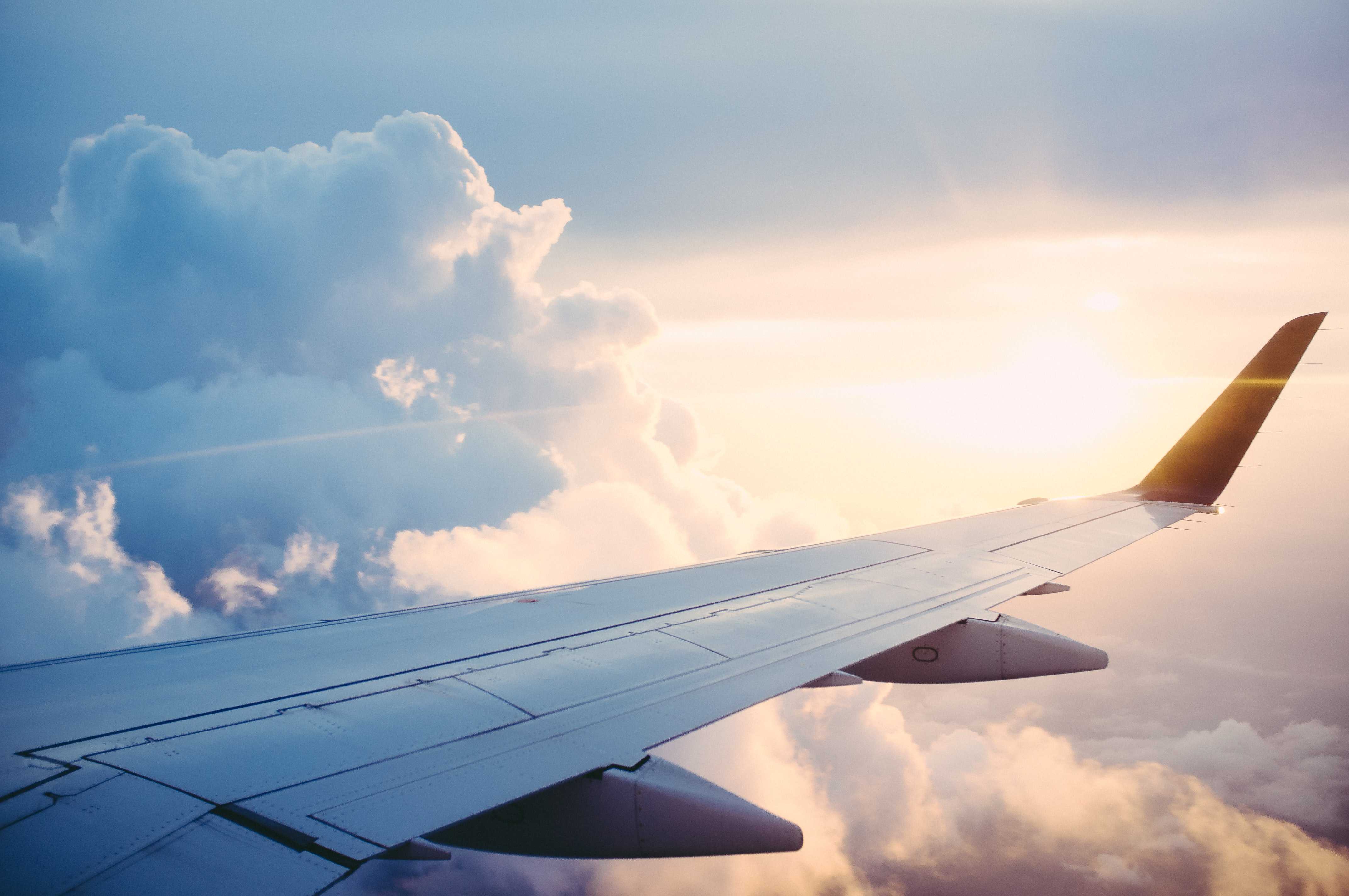“The term OFW was adopted after the enactment of RA 8042, also known as Migrant Workers and Overseas Filipinos Act of 1995. Following this, the 2002 POEA Rules and Regulations Governing the Recruitment and Employment of Land-based Overseas Workers adopted the term Overseas or Migrant Filipino workers,” according to DOLE.1 RA 8042’s goal was to establish a higher standard of protection and promote the welfare of migrant workers, their families, and overseas Filipinos in distress. According to the 2019 survey of Philippine Statistics Authority (PSA), OFWs’ total number is estimated at 2.2 Million. 56% of the OFWs are female while the majority of OFWs at 22.6% belongs to 30 to 34 years of age. At 20.7%, the age group of 25 to 29 years is the second largest age group of OFWs.
Why do Filipinos choose to work overseas?

Photo by Kelly Lacy from Pexels
Filipinos go abroad for different reasons, the most common are the following:
1. Search for greener pasture
One of the challenges faced by OFWs in other countries is homesickness. Even so, many still leave their homes and families behind, hoping to have and provide better lives, economic-wise. The opportunity to earn more in another country gives courage to many as this could mean a more comfortable life after a few years. Higher income comes with OFW investment opportunities.
2. Career advancement
Aside from the hopes of a greener pasture, many young professionals look at working overseas to gain more experience and skills. They also yearn to experience a different culture and environment, which can be beneficial to achieving their dreams and goals. They choose countries where there are more advanced technology and system for a gainful experience.
3. Reuniting with family and relatives
Filipinos are known to have close family ties. While some go overseas to seek better lives, others use this as a means to reunite with family members who are already living in other countries.
The Woes and Challenges Faced by the Modern-day Heroes

Photo by Anna Shvets from Pexels
With higher earnings and upgraded skills and experience, countless opportunities – specifically OFW investment opportunities, remain as a carrot to pursue this venture. However, being an OFW is not a simple walk in the park. Filipinos working overseas face many challenges and difficult days that some would not have thought of prior to leaving the home country.
1. Homesickness
Even if the reason for going overseas is to reunite with family or relatives, homesickness is still felt by some as they miss the environment and friends from the home country. This is even worse for the workers who leave their families behind to provide and secure them with a better future. Working overseas means that they won’t be able to join their families on special occasions for years or be with them physically during trying times, with some not even knowing when they can eventually come home again. Parents miss the birthdays of their children, school activities, and at times, even graduation rites even after working so hard to provide them with education. Younger individuals, on the other hand, tend to appreciate more the care provided to them by their parents and elderly at home.
2. Culture Shock
The sudden change in environment does not come easy. Coping up with the drastic changes requires a strong mental and positive disposition. The culture, the environment, and the system are things that they need to get used to, and as fast as possible, to survive in the host country.
Learning the host country's culture, beliefs, and system prior to moving to it would help the individual prepare on what he/she would eventually encounter. It is important to research on the host country to know whether or not it is a community the individual can adapt to.
3. Job Security
Job tenure and security are also one of the common challenges faced by OFWs as employment opportunities are usually tied to contracts with specific years of employment, open for renewal or extension, as well as to the market performance. An example of this is the woes brought by the COVID-19 pandemic. In January 2021, the Department of Labor and Employment (DOLE) reported that more than 400,000 OFWs were affected by the Covid-19 pandemic and had been brought home.2
Being an OFW means taking risks, including job loss, even at unexpected times. As this is the case, it is highly important to make most of the opportunity while at it. This means working towards their goals while possible, best achieved through savings and investments.
Long-term Goals in Sight

Photo by Danielle MacInnes on Unsplash
Most OFWs share similar goals. If we take a look at it, these are not different from the goals of every Filipino.
1. House and Lot
One of the top most, if not the number one goal, is to own a house and lot. Owning a house and lot is a major step in securing the family’s future and a comfortable living. It is worth noting that this is not an impossible dream. Nowadays, there are many affordable houses and lots in the Philippines that OFWs can look into. A reputable housing brand offering affordable houses and lots is Lessandra. The affordable homes of Lessandra come with superior quality and community amenities, making them ideal permanent residences. Aside from bank loans, OFWs may look into government housing programs and facilities which make owning a house easier, such as the Pag IBig housing loan. The Pag IBIG housing loan is available to local and overseas employees so long as the requirements are met. Do not miss the chance to invest in a home.
To learn more on how to avail a house and lot through Pag IBIG housing loan, read OFWs’ Comprehensive Guide to Government Housing Loans.
2. Children’s Education
As the famous anecdote says, “Education is the passport to the future, for tomorrow belongs to those who prepare for it today”. It is no wonder that securing the education of their children or younger siblings is one of the motivations and priorities of OFWs. The diploma serves as a reward for the years of sacrifices and hard work, the stepping stone to success for their loved ones.
3. Be Debt-free
Due to the difficult and challenging economic situations in the home country, many resort to trying their fate and luck in other countries to resolve financial obligations. In some cases, some are already debt-ridden. With higher earnings, it is prudent to use this opportunity to pay off financial obligations while sustaining the family and personal needs.
4. Business and Investment
This may not come as the first priority for many, especially for those who are the sole breadwinners of their families as they think they do not have enough to start one. However, more and more start to realize how important it is to not just save money but to also grow them. Many would dream of being able to put up a business once they have enough capital so they could go back home and have a comfortable and decent life without being separated from their loved ones. This is a practical step to secure their future amidst the woes and challenges they face working overseas.
It is important not to lose sight of finances when one is already earning much more than before. It is not uncommon for Filipinos to splurge on “pasalubongs” and “balikbayan boxes” to shower their affection, but the long-term goals would provide more than just a moment’s happiness. OFWs should not just consider but think really hard on how to spend the money they’ve worked so hard for and turn to investments.
One of the most lucrative OFW investment opportunities that should be explored is real estate. Investing in real estate is like hitting two birds with one stone; one gets to secure a home of his own and at the same time have an income-generating asset. As an example, one can invest in townhouses for sale in the Philippines, such as Lessandra’s Arielle. If one is buying the whole block, make use of one or two units as apartments for lease, while the rest serve as residences to the family. For more spacious family homes, one can choose from Criselle, Ezabelle, Frielle, and Sienna to cater to the home space needs. The advantage of choosing a Lessandra community is that all Lessandra homes are located in easily accessible areas near major transport networks, commercial establishments, daily necessities, and even tourist attractions. This does not only mean convenience for the family but also opens business opportunities, as houses and lots in strategic locations increase in value exponentially in time. If, in the future, there is a need to sell the property, one would have a profitable income from the increased property value. The property may also be used for short-term rentals instead of long-term leasing as more tourists now choose homestays than hotels for travel accommodation.
Real estate is just one of the many investment options an OFW can go for. Working far from the comfort zone is not an easy feat. If you’re an OFW, do not let your efforts and hard work go to nothing. Research and learn how money can work for you. Invest in your future.
Sources:
1https://www.gmanetwork.com/news/news/pinoyabroad/275011/how-martial-law-helped-create-the-ofw-phenomenon/story/
2https://www.dole.gov.ph/news/400k-ofws-sent-home/
Lessandra Blog is a compilation of home-related articles. For real
estate investment and tips on how to buy houses and lots in the Philippines, visit Lifestyle and
Home Investments. To know more of Lessandra’s affordable houses and lots for sale, visit
the Project
Listings and House Listings.




